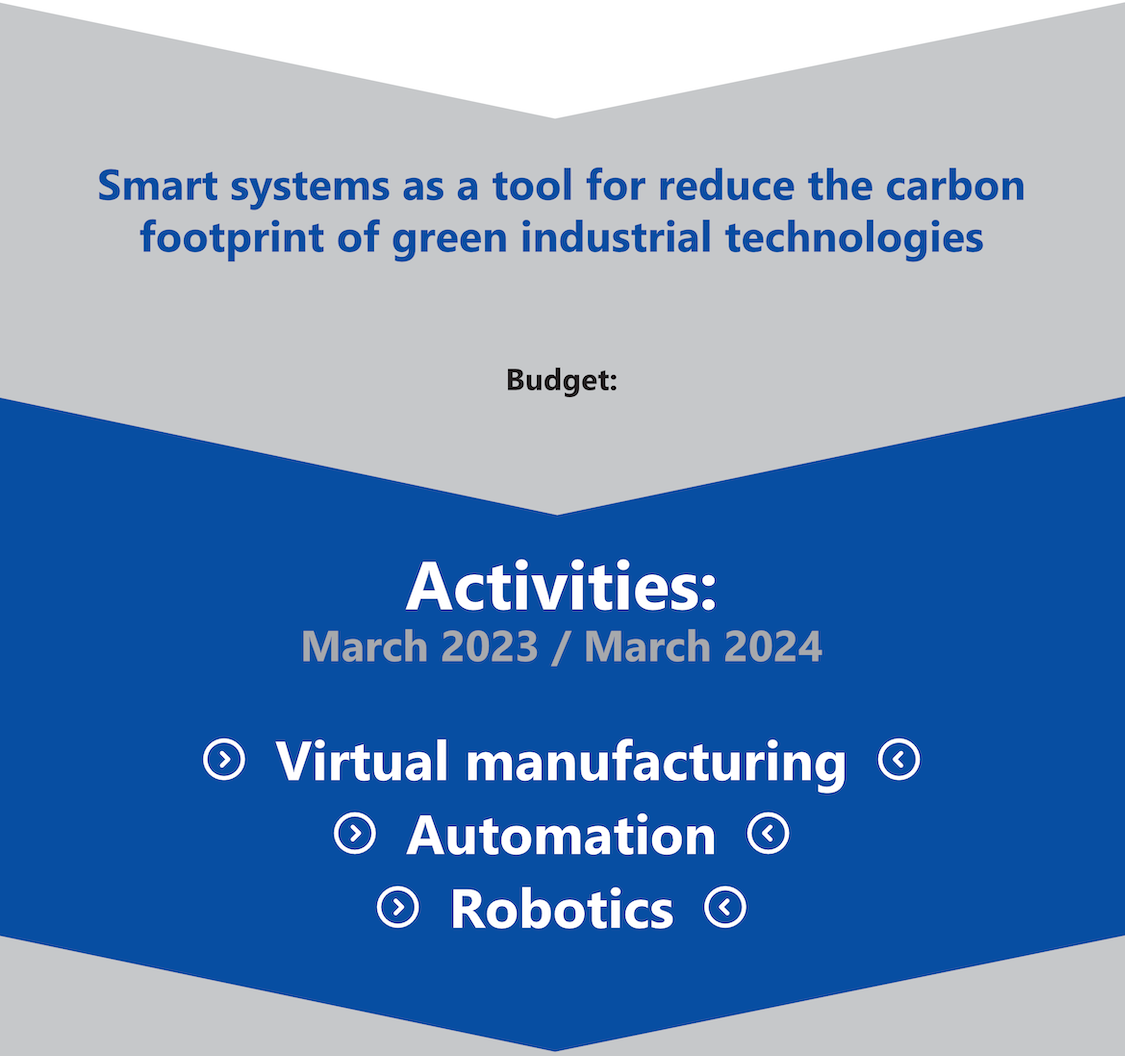Working together for a green,
competitive and inclusive Europe


About project
The project is focused to create mobility opportunities and activities between participating universities and industrial high schools to support the expansion of cooperation in education, graduates ‘employability, increasing graduates’ expertise and practical experience, mutual exchange of knowledge and experience. The project aims at bachelor’s and engineering students, teachers, and high school students. Within the project, there will be realised mutual transfers of current experience and knowledge usable in the preparation of study materials innovation of study plans and implementation of professional seminars focused on knowledge acquisition, change of young people’s thinking in the application of new intelligent systems and technologies aimed at reducing the carbon footprint of green industrial technologies in the educational environment. The activities and outputs of the project are targeted at the field of green innovation in industry in accordance with the current challenge.
Thanks for the support
The project “Intelligent Systems as a Tool for Reducing the Carbon Footprint of Green Industrial Technologies” has received a grant from Iceland, Liechtenstein and Norway in the amount of 169 524,17 € through the EEA Grants. The project was co-financed in the amount of 29 916,03 € from the state budget of the Slovak Republic. The aim of the project is to increase the knowledge on the application of intelligent systems using automation, virtualisation and optimisation processes in order to reduce the carbon footprint of industrial technologies and thus improve their impact on the environment, by means of attendance and mobility activities.
The EEA Grants represent the contribution of
Iceland, Liechtenstein and Norway towards a green, competitive and inclusive Europe. There are two overall objectives: reduction of economic and social disparities in Europe, and to strengthen bilateral relations between the donor countries and 15 EU countries in Central and Southern Europe and the Baltics.
The three donor countries cooperate closely with the EU through the Agreement on the European Economic Area (EEA). The donors have provided €3.3 billion through consecutive grant schemes between 1994 and 2014. For the period 2014-2021, the EEA Grants amount to €1.55 billion.
The three donor countries cooperate closely with the EU through the Agreement on the European Economic Area (EEA). The donors have provided €3.3 billion through consecutive grant schemes between 1994 and 2014. For the period 2014-2021, the EEA Grants amount to €1.55 billion.
The priorities for this period are:
1. Innovation, Research, Education and Competitiveness
2. Social Inclusion, Youth Employment and Poverty Reduction
3. Environment, Energy, Climate Change and Low Carbon Economy
4. Culture, Civil Society, Good Governance and Fundamental Rights
5. Justice and Home Affairs
2. Social Inclusion, Youth Employment and Poverty Reduction
3. Environment, Energy, Climate Change and Low Carbon Economy
4. Culture, Civil Society, Good Governance and Fundamental Rights
5. Justice and Home Affairs
The Norway Grants are jointly financed by Iceland, Liechtenstein and Norway, whose contributions are based on their GDP.
Eligibility for the Grants mirror the criteria set for the EU Cohesion Fund aimed at member countries where the Gross National Income (GNI) per inhabitant is less than 90% of the EU average.
All projects are co-financed by the State Budget of the Slovak Republic in the amount of 15%.
Eligibility for the Grants mirror the criteria set for the EU Cohesion Fund aimed at member countries where the Gross National Income (GNI) per inhabitant is less than 90% of the EU average.
All projects are co-financed by the State Budget of the Slovak Republic in the amount of 15%.
